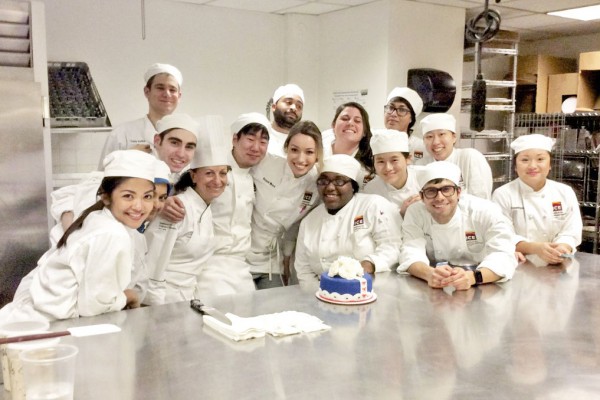Desserts - plated desserts, especially - are the final impression a chef gives his guests. This high-stakes pressure means that the greatest pastry chefs take particular care with their creations, reviving guests' taste buds with a balanced composition of flavor, texture and presentation. This challenge, not surprisingly, hits home for ICE pastry students.
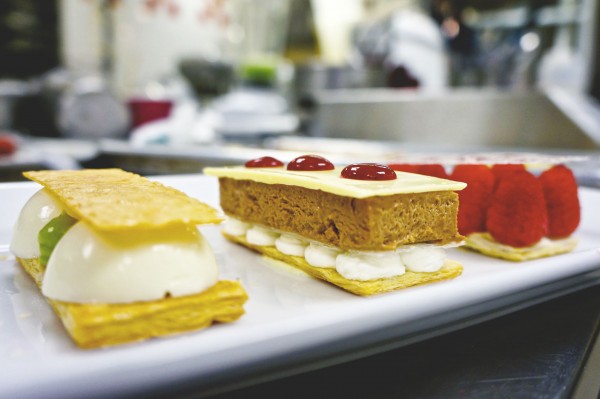
In a recent lesson with Chef Instructors Chad Pagano and Michael Laiskonis, we learned the importance of having both complementary and contrasting elements in a dessert. These ingredients can vary widely in terms of flavor, color, temperature and texture. In order to achieve balance, the chef has to focus on what he wants the finished product to convey and create his or her components accordingly. Should the dessert be hot or cold? Delicate or crunchy? What combinations of flavor and texture will enhance the overall experience?
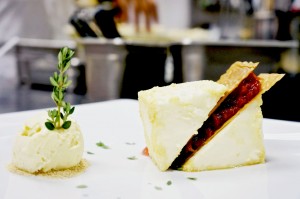 As far as personal style in plated desserts, you may have noticed a trend toward dishes that are designed to be playful or nostalgic. Tapping into childhood memories is often a question of details. Think of ice cream.
As far as personal style in plated desserts, you may have noticed a trend toward dishes that are designed to be playful or nostalgic. Tapping into childhood memories is often a question of details. Think of ice cream.
At its core, it's a simple dessert - a scoop is a scoop - but put that scoop in a waffle cone and add a drizzle of caramel or toasted nuts, and you're immediately transported to that moment when you first tried a pre-packaged cone from the ice cream truck.
You savored every creamy bite of that summer treat, enjoying the crisp-cold combination of cone and melting ice cream. These are the types of whimsical memories that we want to interpret and channel as chefs - even when crafting elegant, high-end desserts.
Along with striving to balance all the elements of a plated dessert, we also try to find stability in the kitchen. Recipe in hand, we make a plan and divide the tasks to have all the components of the dessert ready in a timely manner. Breaking up tasks also helps ensure consistency. Returning to our ice cream cone example, if one person is scooping the ice cream, the scoops are more likely to be all the same size.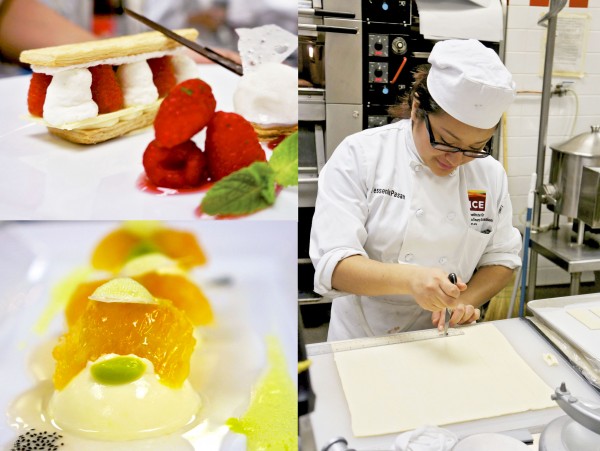
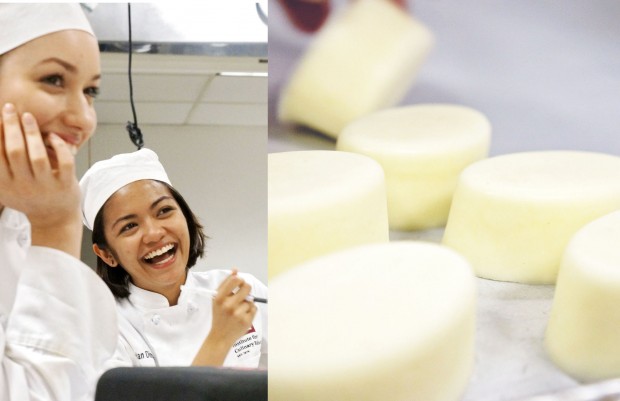
Finally, one of the more elusive elements of a plated dessert is simplicity. Creating a visually simple dessert allows for the element of surprise. Think about a molten chocolate cake. At first glance, it’s just a chocolate cake, maybe with a scoop of ice cream on top.
But sink your spoon into the center, and you immediately realize there’s more to it than meets the eye. The contrasting temperatures and textures come together to deliver a whimsical experience. So while we try to make our desserts look beautiful, we also strive to make sure there's "more than what meets the eye."
Just like an seemingly simple dessert, assembled with carefully crafted ingredients, my class of students in my pastry program have become a cohesive team. Together, we are a collection of very different people, who, with our contrasting talents and personalities, come together to create a very memorable experience in Kitchen 501!
